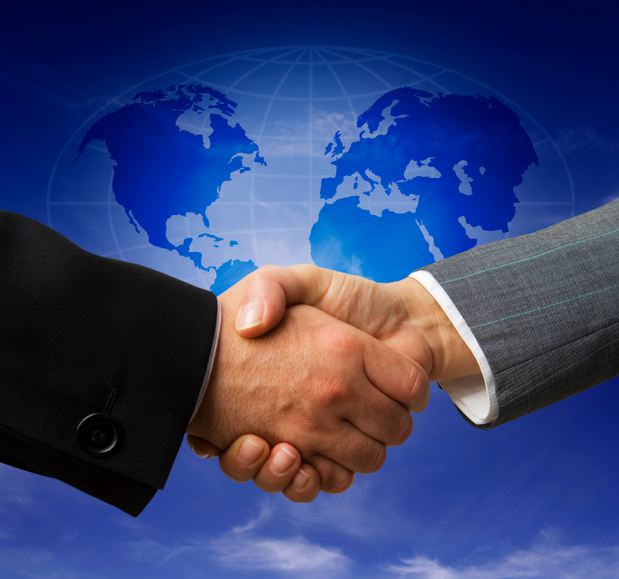Simple Gestures Can Make or Break a First Impression
What your handshake says about you
By: Corinne Sato, Staff Writer
People do it all the time; some are good at it – others, not so much. Politicians, world leaders, athletes and CEOs have been known to do it quite frequently. We even do it with strangers. What could this be? It is the handshake.
Although this is a simple gesture in North America, there are many people who don’t give a proper handshake.
On March 1, 2013, The Canadian Press published an article reporting that Hockey P.E.I warned players and coaches about aggressive handshakes. In the article, players and coaches were reminded that shaking hands after a game was a long-standing tradition and that people should treat each other with respect when shaking hands.
Many people, including you, may have experienced a bad handshake – from a “bone-crusher” to a “limp” one. You may even be giving a bad handshake and not even know it. Unfortunately, a bad handshake can affect what other people think about you.
Sherri Olsen, a career and life coach in Calgary, finds it surprising that some people in the business world, including CEOs, do not have a firm handshake.
“It’s a basic gesture,” she says, “and it needs to be taught.” The handshake can “make or break the first contact,” she adds.
A handshake assumes engagement with another person. A bad handshake can indicate a lack of confidence and can break rapport instead of building it, she says.
“Although it is up to interpretation, you don’t want someone to be questioning your enthusiasm based solely on a handshake,” Olsen says.
History of the Handshake
Allan and Barbara Pease provide a brief history of the handshake in “The definitive book of body language”.
The authors explain that “shaking hands is a relic of our ancient past. Whenever primitive tribes met under friendly conditions, they could hold their arms out with their palms exposed to show that no weapons were being held or concealed.”
Elizabeth Shipps and Harvey Freeman, authors of a research study published in the “Psi Chi Journal of Undergraduate Research” have this to add about the backstory of the famous gesture: “The handshake has traditionally been a common means of greeting others. This form of greeting behaviour was developed from a handclasp dating back to ancient Rome”.
The handshake has been used over time to “seal commercial transactions between men of equal status”, according Allan and Barbara Pease. Today, the handshake is used for greetings and departures in business contexts, as well as in social situations for both men and women.
Men, Women and the Handshake
Throughout history, men traditionally have been the ones who have given handshakes.
Three research studies focused on handshakes and social interactions. In the Journal of Personality and Social Psychology (2000), William Chaplin et al focused on how the correlation between the handshake and first impressions related to genders.
Chaplin et al explain that although men’s handshakes were firmer than the women’s, a women who gave a firm handshake gave the first impression of being confident and open.
Their research indicated that receivers of a handshakes preferred firm handshakes from both men and women.
Sanda Dolcos et al had similar findings in their research study published in the Journal of Cognitive Neuroscience (Volume 24, No. 12).
Receivers of firm handshakes perceived the gesture as a positive interaction, explains Dolcos et al. In other words, people who give firm handshakes in social interactions give a good first impression to others.
As with the first two studies, Shipps and Freeman found that: “The handshake is a common ritual in a job interview, and the results of this study, and that of Chaplin et al., suggest that this ritual may allow women who exhibit a firm, dry handshake to create a more positive impression of themselves, especially when interviewed by a woman.”
Not surprisingly, the research is consistent with the real world.































Share the post "Simple Gestures Can Make or Break a First Impression"